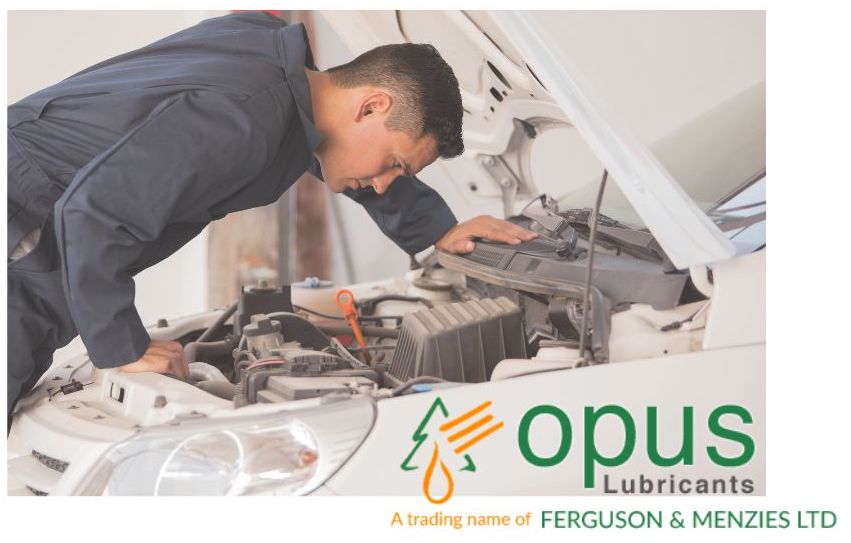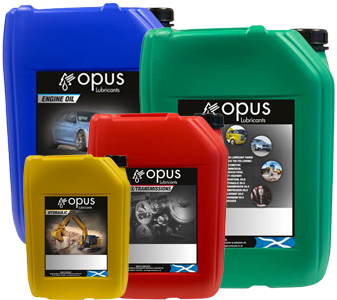Opus Lubricants: Your Choice for Winter Driving Products
Get ready for winter with our cold weather vehicle care tips
Ferguson & Menzies is a top manufacturer of high quality Opus Lubricants and oil is our life blood. Read our guidance below on keeping your vehicle in shape as temperatures drop.

The Beast from the East, Storm Arwen, the hottest months on record in 2022 and increasing climate changes in Scotland: extreme weather is increasing, even in temperate Scotland, so it’s important to look after our vehicles to keep us moving.
Oils and coolants
The colder weather can take its toll on cars, trucks, construction and agricultural machinery as lower temperatures make oil thicker, reducing its effectiveness and causing potential damage to the vehicle’s engine. Before the cold weather arrives in earnest, make sure you get your oil and coolant levels checked to ensure your engine is healthy for poor weather conditions. An extremely important property of a lubricant is its viscosity so choosing a lubricant with a decent winter grade is highly recommended. Read more information about our products for petrol and diesel engine oils and also visit our Winter lubricants and coolant tips blog.
Keep safe!
As well as caring for your vehicle in the cold you also need to ensure some safety checks are carried out to avoid injury to yourself and passengers – and a hefty garage bill if something goes wrong. Your vehicle’s manual is a good resource to help you get to know its parts.
Check tyre pressure, lights and electrics so your vehicle drives properly, you can see roads in darker hours – and equally be seen – and that all windows, heaters and other systems are working. Get new tyres if you notice any are looking soft or damaged or the tread is low. Avoid economy tyres and invest in the best ones you can afford, perhaps also considering winter tyres for the Scottish winter weather.

Ice and snow obviously affect driving conditions so your brakes must be in good shape to tackle these conditions. Listen for noises, squeaks and rattles and be aware of stopping distances or changes in motion when braking. Worn or faulty brakes must be inspected as soon as possible. Also take a look at our brake fluid.
Your vehicle’s battery works hard in the cold so if you’re driving less or notice your car’s slower to start you may need a new battery. Replace it before temperatures drop too low.
Make sure the cooling system and radiator are in good order – be aware of any leaks or visible damage and get them fixed as soon as possible.
Antifreeze is vital to ensuring the cooling system works correctly, especially as very cold temperatures approach. Some modern cars will have a warning light if antifreeze levels drop too low, but it’s important to keep ahead of the warning and prevent damage by keeping an eye on your antifreeze. Heat damage causes all sorts of issues in your vehicle, including poor fuel economy, disruption to the heating system and engine problems.
Other basic tips
Make sure your wiper blades work well – old and squeaky blades will do nothing to help you see in snowy or icy conditions.
Top up screenwash to clear away salt and grit from your windscreen.
Check windscreens and windows for cracks or chips and replace as soon as possible to avoid further damage – or potential injury.
Keep spare light bulbs, a jack, a torch, blanket/warm clothing, a high-vis, drinking water, a snack and jump leads in the car just in case. Take your phone every time you travel – and your charger.
Consider getting a winter service to check your vehicle for leaks, get an oil change and cover all bases to give you peace of mind before any cold weather disruption.
Use our Oil Selection Tool or contact Ferguson & Menzies for more information and advice on winter lubricants for your vehicle.




